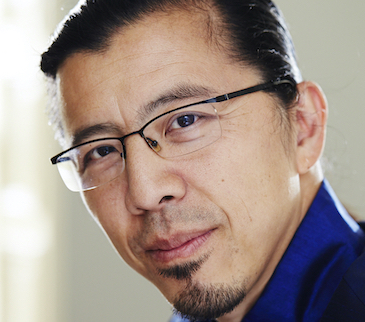At first, my parents were a little hesitant on the idea of pursuing music as a career, but they’re super supportive now. I also knew I wanted to stay close to home. Oakland University and Oakland Community College were my only options when I was looking for colleges, and I applied to both. Unlike most students in the college audition process, I was not able to have a lesson with the flute teacher at OU, Sharon Sparrow, prior to my audition. I consider myself very lucky to have ended up studying with her.
Picking the right teacher.
If you are trying to make decisions about colleges, the right teacher is crucial. I didn’t really get the chance to select someone, but OU has incredible professors in the School of Music and especially in the flute faculty. I was very lucky to study with Professor Sparrow for as long as I did, and also Professors Jeff Zook and Amanda Blaikie on different occasions. Looking back on the audition process for my graduate program, and also observing what those around me have done, I’ve learned that it’s important to have a teacher whose professional experience matches your career goals. If your goal is to perform with an orchestra, it’s best to study with a professor that currently plays in an orchestra, or has extensive orchestral performance experience.
It’s vital to feel comfortable with your professor, and to establish a good relationship from the beginning. You will be spending a ton of time together, and those professors will be recommending you for jobs someday. If possible, I would recommend taking one or two lessons with a professor before you consider applying to their studio. You should listen to their recordings online and watch classes they have done to get a sense of their teaching, as well. However, there is nothing quite like meeting them in person and playing for them. It’s also very important to keep an open mind. All good things take some time and adjustment.
Picking the right college.
I did my undergraduate at OU (a smaller school with c.19,000 students), and my masters at Boston University (a larger school with c. 34,000 students), so I have had some experience in different college environments. I was surprised when I started at Boston University by how similar it felt to Oakland University. Although the size of the two universities is different, both colleges are great at giving their students individualized instruction. At OU I was given many performance opportunities because the program was smaller and the various campus ensembles needed students. Because I was at OU for five years, I also formed a stronger bond with my professors and classmates. At BU, there is a larger pool of music majors. There aren’t as many performance opportunities as at OU. However, as a graduate student spending most of my time working on auditions and competitions, that didn’t hinder my educational experience. BU also has a large graduate program. I felt that I was able to grow immensely as a musician because I was exposed to more graduate students. I’ve talked to many undergraduate students that had wonderful experiences at larger schools. When considering different programs, it’s very important to consider which traits are important for you to have in your education. One thing that works for one student may not necessarily work for another.
I’ve thought a lot about how things would have turned out if I began at a larger school. To be honest, I’m grateful I started my college experience at a smaller university. As a 17-year-old college freshman, I think I would have found a larger university overwhelming. OU was able to meet me where I was as a musician, and through the vast performance opportunities and also how much individualized attention I received from all of my professors, I grew immensely in my five years there. Larger universities tend to have very large graduate programs, so it’s more difficult for undergraduates to get as many performance opportunities. It’s healthy to have more competition, but that competition also limits the opportunities available to you.
Ultimately, however, I would say that the teacher should be your determining factor for choosing a music college rather than the reputation or size of the school. You can go to the best music programs in the world, but if you aren’t able to learn to your full potential from your teacher, what’s the point?
Edited for length and clarity by Claire Thompson.
#college

Alyssa Primeau
Alyssa Primeau recently completed her Masters degree in flute performance from Boston University, and will begin a Performance Diploma at Boston University in the fall of 2020. She earned her Bachelor's degree in instrumental music education and flute performance from Oakland University. Her primary teachers include Linda Toote, Sharon Sparrow, and Jeffery Zook. Alyssa has been featured as a soloist with a number of ensembles such as the Boston University Symphony Orchestra, the Oakland Symphony Orchestra, the Royal Oak Symphony Orchestra, and the Oakland University Wind Symphony. As a chamber musician, Alyssa has extensive experience performing with small ensembles of varied instrumentations. Most recently, as a member of the RedLime Flute Quintet she premiered Martin Amlin’s Three Inventions for Five Flutes and Piccolos in April of 2019. As an orchestral musician, Alyssa has performed with various orchestras including the Detroit Symphony Orchestra, the Oakland Symphony Orchestra, and others.



Comments are closed.